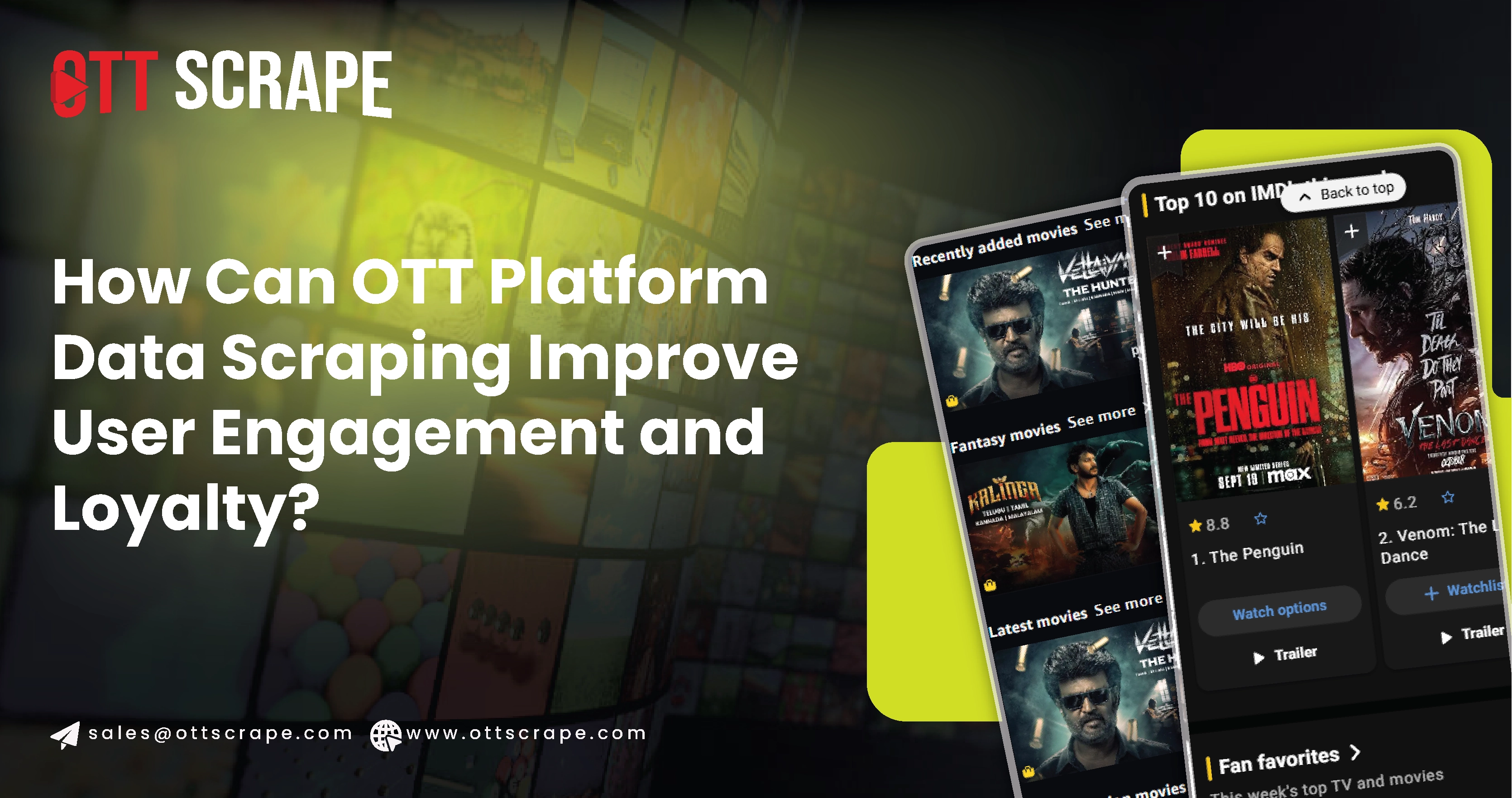 With the rapid growth of digital streaming, OTT Platform Data Scraping is transforming entertainment consumption worldwide. As new platforms launch and expand globally, understanding their impact has become essential for businesses, analysts, and consumers. OTT platforms like Netflix, Amazon Prime, Disney+, and many regional competitors provide diverse content across various genres and languages, creating immense data volumes. Scrape OTT Platform Data is a powerful approach to unlock insights into the impact of new platform launches, assess market trends, and gauge consumer preferences.
With the rapid growth of digital streaming, OTT Platform Data Scraping is transforming entertainment consumption worldwide. As new platforms launch and expand globally, understanding their impact has become essential for businesses, analysts, and consumers. OTT platforms like Netflix, Amazon Prime, Disney+, and many regional competitors provide diverse content across various genres and languages, creating immense data volumes. Scrape OTT Platform Data is a powerful approach to unlock insights into the impact of new platform launches, assess market trends, and gauge consumer preferences.This article will explore how OTT Platform Data Scraping works, the types of data collected, the benefits and applications of scraped data, and the challenges and ethical considerations associated with data scraping in the OTT sector.
Understanding OTT Platform Data Scraping
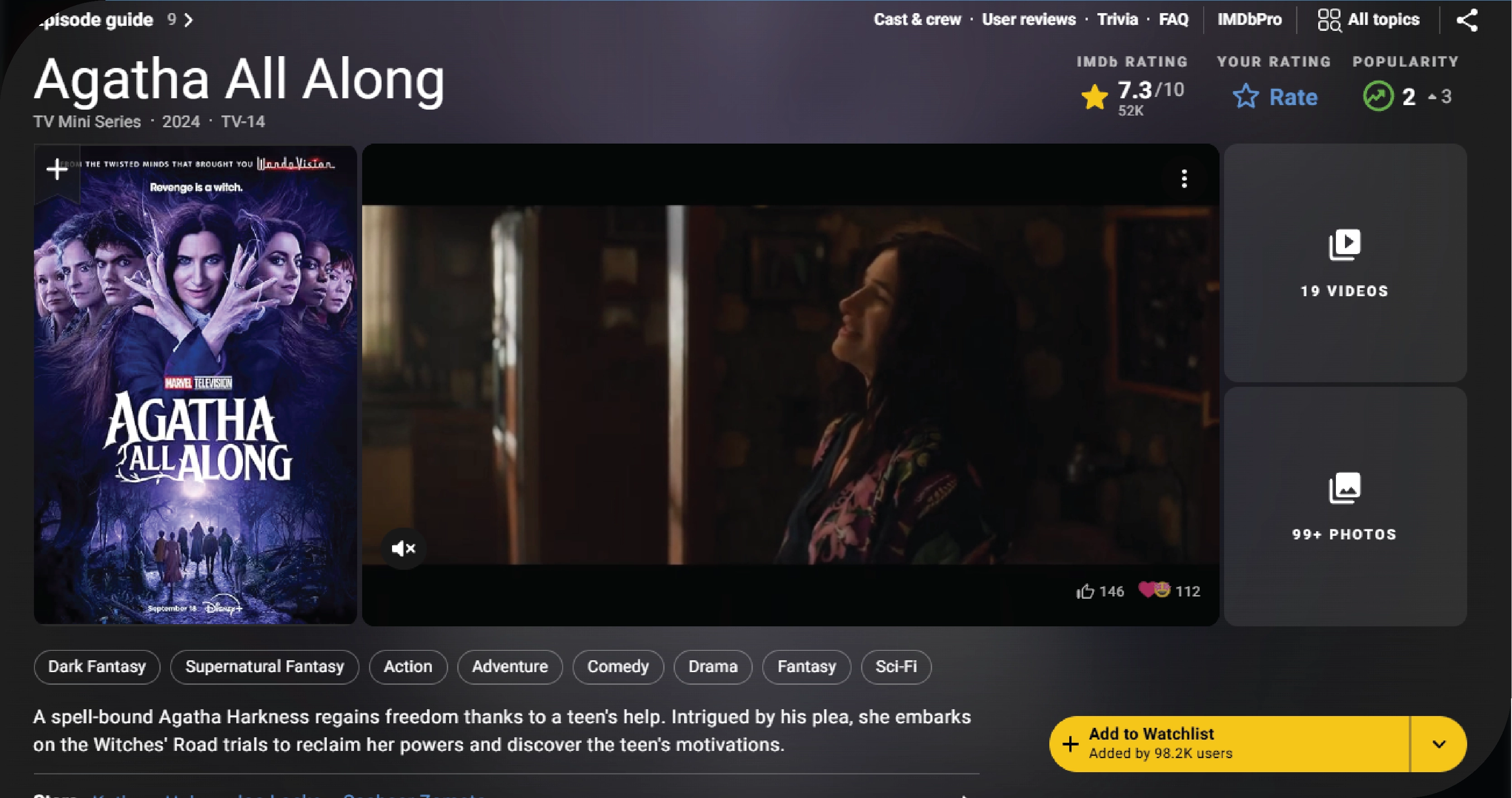 OTT Platform Data Collection involves using automated tools and techniques to extract data from OTT platforms' publicly accessible web pages. This data typically includes various elements such as:
OTT Platform Data Collection involves using automated tools and techniques to extract data from OTT platforms' publicly accessible web pages. This data typically includes various elements such as:1. Content Catalog: Detailed information about available movies, TV shows, documentaries, and other content, including titles, genres, language, release dates, and descriptions.
2. User Reviews and Ratings: Feedback and ratings that provide insights into audience reception and preferences.
3. Popularity Metrics: Data on trending or most-watched titles, often organized by location or genre.
4. Subscription and Pricing Information: Information about pricing tiers, available subscription plans, and discounts offered.
5. Platform Usage Statistics: General trends on content consumption, such as peak viewing times, device preferences, and user demographics (where available).
Through OTT Platform Data Scraping Services, businesses and analysts can collect and analyze data from multiple platforms to identify trends, understand user behaviors, and measure the impact of new entrants in the market.
The Impact of New OTT Platform Launches on the Market
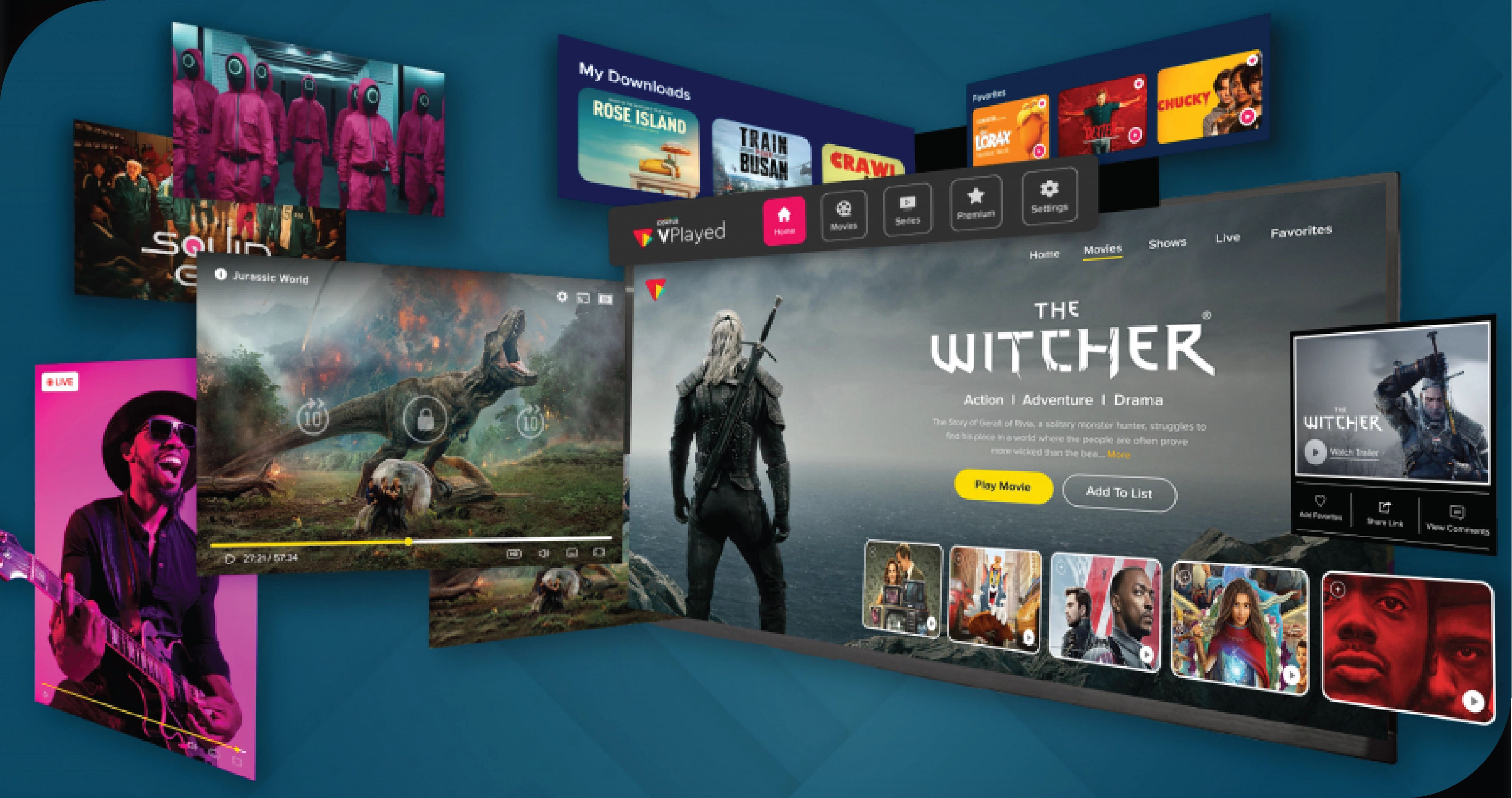 The entry of new OTT platforms into the market often leads to increased competition, significantly affecting viewer habits, subscription models, and content strategies across existing platforms. Some critical impacts of new OTT platform launches include:
The entry of new OTT platforms into the market often leads to increased competition, significantly affecting viewer habits, subscription models, and content strategies across existing platforms. Some critical impacts of new OTT platform launches include:Increased Competition and Content Diversity:
- Launching a new OTT platform generally brings fresh content, diverse genres, and potentially niche offerings, leading to more excellent options for audiences. This diversity can increase user engagement as audiences explore new content they previously couldn't access.
- Existing platforms may respond by adding new shows, movies, and exclusive content to retain their audience, creating a content-rich ecosystem. OTT Platform Data Scraper tools can help track content updates, allowing platforms to analyze competitors' strategies effectively.
Shift in Subscription Patterns:
- Many viewers now juggle multiple OTT subscriptions, which means new launches can lead to changes in subscription patterns. Consumers may decide to try new services while canceling or pausing existing subscriptions.
- By analyzing OTT Platform Data Extraction data, OTT providers can identify trends in subscription fluctuations around launch dates, allowing them to strategize retention measures. Extract OTT Platform Data to gain insights into subscription dynamics.
Impact on Pricing and Subscription Models:
- The competition often brings innovative pricing models, including pay-per-view options, ad-supported free tiers, or bundled packages. Scraping pricing data helps businesses observe competitive pricing strategies, enabling them to offer better or more appealing plans to attract new users. With Web Scraping OTT Platform Data, OTT businesses can keep up with evolving pricing trends and user preferences.
Regional and Language-Specific Content Growth:
- New OTT platforms often focus on regional content, tapping into languages and genres popular within specific areas. This can lead to a rise in regional content popularity across the industry as other platforms follow suit to capture regional audiences.
- Extracting OTT Platform Data on regional content availability and user reception helps OTT platforms better strategize for region-specific audiences. An OTT Platform Data API enables targeted data collection on regional content trends and audience feedback.
User Engagement and Loyalty:
- As more platforms compete for attention, audience loyalty is more challenging. Scraping data from user reviews, ratings, and engagement metrics allows analysts to identify factors that drive user loyalty, like content quality, user interface, and personalized recommendations.
- Through OTT Platform Data Scraper tools, platforms gain valuable insights into what users value most, helping them foster engagement and loyalty.
Benefits of Scraping OTT Platform Data to Analyze New Launches
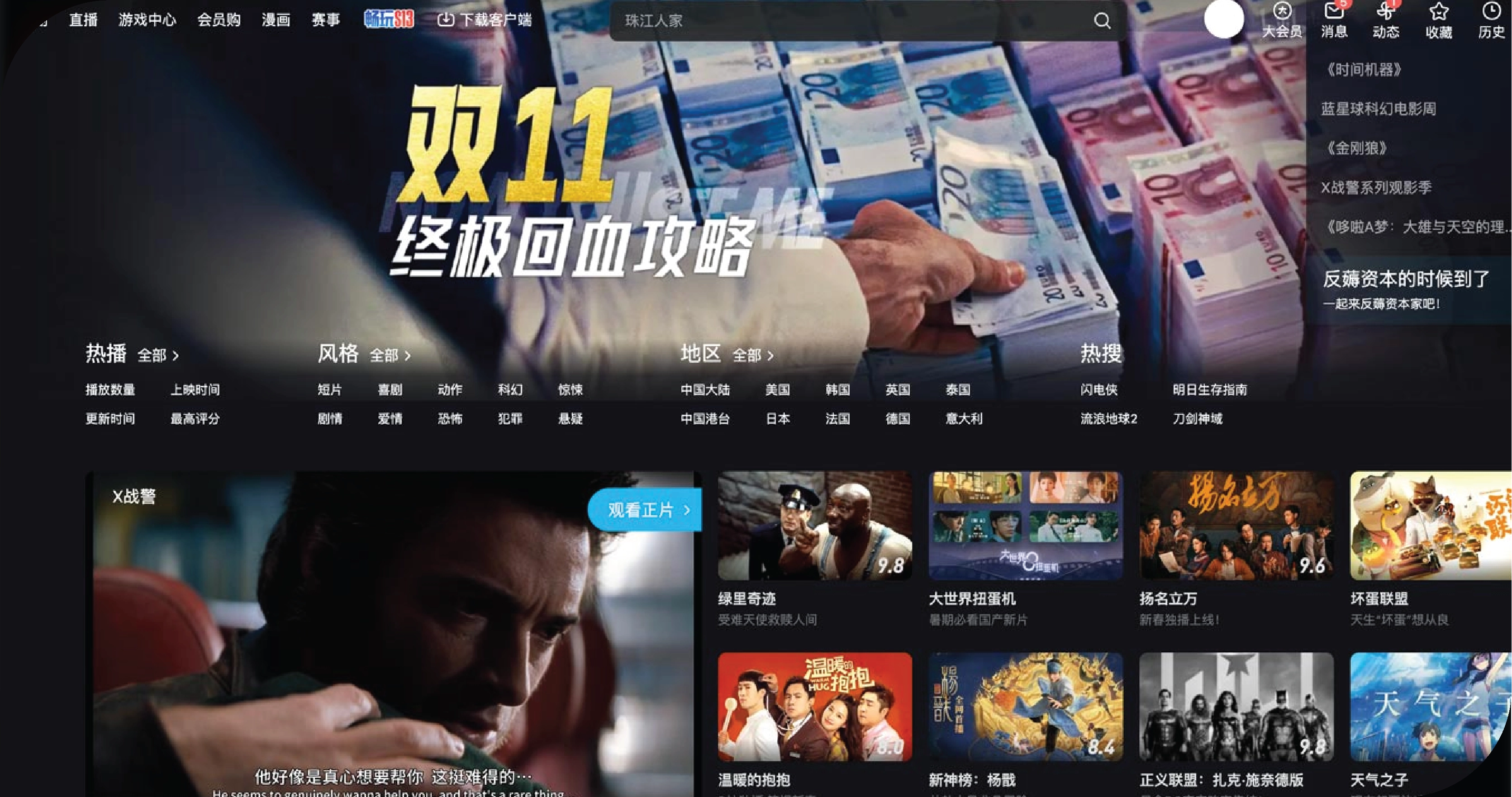 Scraping OTT data offers numerous advantages for understanding how new platform launches impact the market. Some benefits include:
Scraping OTT data offers numerous advantages for understanding how new platform launches impact the market. Some benefits include:1. Real-Time Market Insights:
- Scraping allows continuous data collection, providing real-time insights into viewer preferences, emerging genres, and platform popularity.
- Businesses can observe how a new launch shifts user engagement and affects existing platforms' viewership trends by comparing data from different timeframes.
2. Data-Driven Content Strategy:
- OTT platforms can develop more effective content strategies by analyzing trending content and user preferences. They may invest in specific genres, languages, or series that align with market demands highlighted by the scraped data.
- New entrants in the OTT space can also benefit by understanding what content resonates most with audiences.
3. Personalized Marketing Campaigns:
- Analyzing user ratings, reviews, and viewership trends enables OTT platforms to design targeted marketing campaigns. For instance, they can tailor promotional efforts for content that garners high engagement or appeals to specific audience demographics.
4. Benchmarking and Competitor Analysis:
- Scraped data on subscription prices, content diversity, and engagement rates can help new and existing platforms benchmark their performance against competitors.
- This data empowers OTT platforms to strategically adjust pricing, promotional tactics, or content offerings to remain competitive.
Challenges and Considerations in Scraping OTT Data
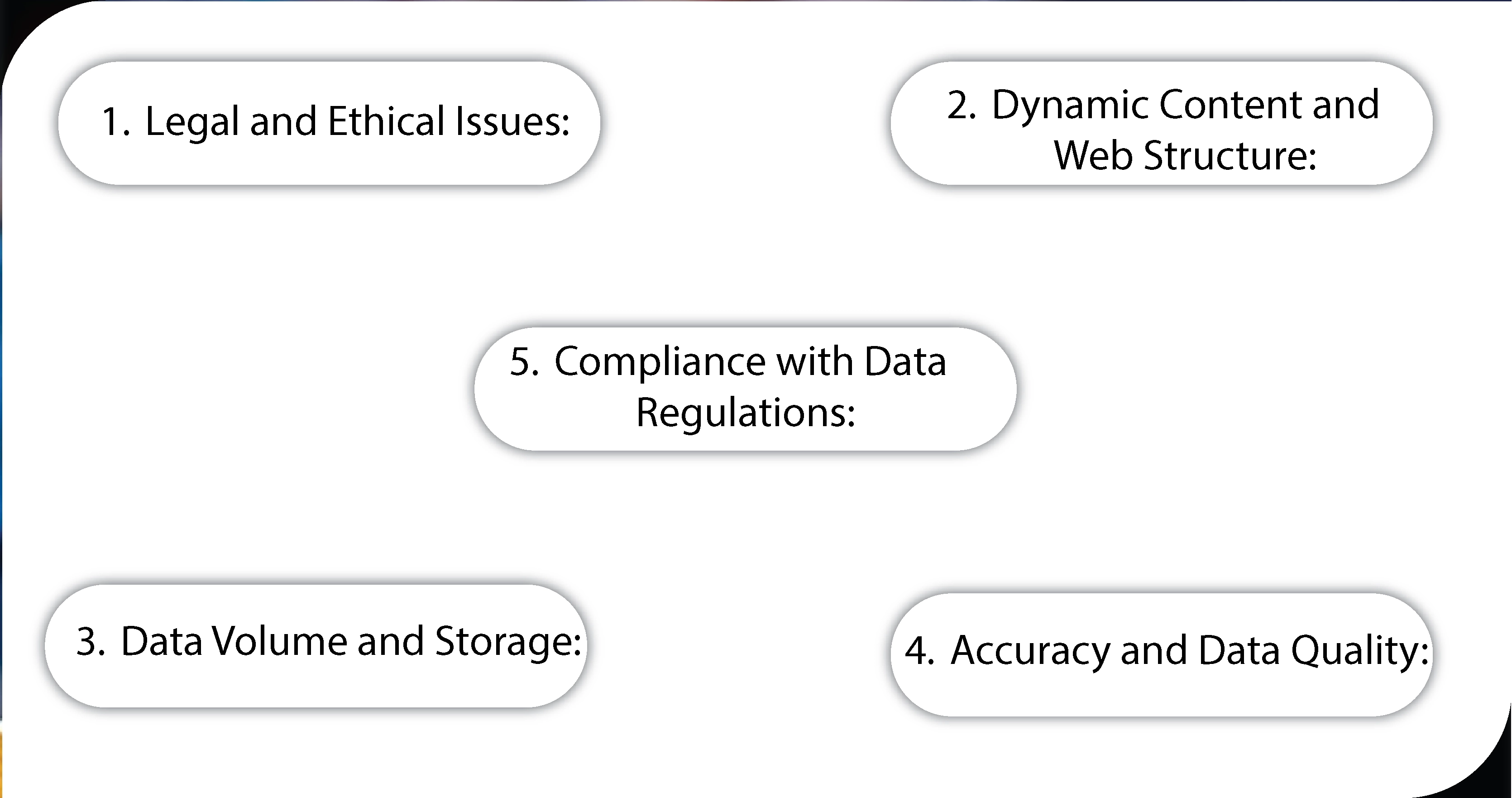 Despite its potential, scraping OTT data presents specific challenges and considerations:
Despite its potential, scraping OTT data presents specific challenges and considerations:1. Legal and Ethical Issues:
- OTT platforms may have terms of service that restrict data scraping. Companies must ensure they are not violating legal agreements when scraping data from these sites.
- Ethical considerations include respecting user privacy by avoiding collecting personally identifiable information (PII) and ensuring data collection does not harm the platform's functionality or user experience.
2. Dynamic Content and Web Structure:
- OTT platforms frequently update their content and site structures, making it challenging for scraping scripts to function consistently. Scrapers need regular updates to adapt to changes in site layouts or data accessibility.
3. Data Volume and Storage:
- The extensive amount of data available on OTT platforms can be challenging to manage and analyze. Efficient data storage and processing solutions, such as cloud storage or databases optimized for big data, are essential for handling large-scale data scraping.
4. Accuracy and Data Quality:
- Since data from OTT platforms can include dynamic elements like ratings that fluctuate based on user feedback, ensuring data accuracy can be challenging. Scraped data may need to be continuously updated to reflect real-time changes, requiring automated, scheduled scraping tools and regular data validation.
5. Compliance with Data Regulations:
- With data regulations such as the GDPR (General Data Protection Regulation), it's essential for OTT data scrapers to ensure compliance by avoiding the collection of personal data and respecting users' rights.
Essential Tools and Techniques for OTT Data Scraping
 Several tools and techniques make scraping OTT data more accessible and more efficient. Standard tools include Python-based libraries like BeautifulSoup, Scrapy, and Selenium, which allow developers to collect data efficiently. These tools can be used to:
Several tools and techniques make scraping OTT data more accessible and more efficient. Standard tools include Python-based libraries like BeautifulSoup, Scrapy, and Selenium, which allow developers to collect data efficiently. These tools can be used to:1. Automate Data Collection:
- Automated scripts can periodically scrape data from targeted sections of an OTT platform's website, capturing information on new releases, popular content, or reviews.
2. Extract Structured Data:
- BeautifulSoup and Scrapy allow structured data extraction, such as movie and TV show details, into clean and usable formats for analysis.
3. Dynamic Content Interaction:
- Tools like Selenium enable interaction with dynamically loaded content, simulating user actions on the site to access information hidden behind click- based elements.
4. Data Storage and Processing:
- Once collected, scraped data can be stored in databases, data lakes, or cloud storage platforms for seamless integration into analytics workflows, facilitating scalable analysis.
Conclusion:
Scraping OTT platform data can reveal valuable insights into how new platform launches impact the streaming industry. By observing changes in subscription trends, content preferences, and market competition, businesses can understand the nuances of consumer behavior in the OTT ecosystem. These insights allow platforms to refine their content offerings, adopt competitive pricing, and develop strategies that cater to specific audience needs.
As OTT data scraping evolves, it will be crucial in shaping data-driven strategies across the digital entertainment industry. By adhering to ethical standards, leveraging advanced tools, and focusing on actionable insights, companies can harness the power of scraped data to stay competitive and responsive in a fast-paced, ever-changing market.
Embrace the potential of OTT Scrape to unlock these insights and stay ahead in the competitive world of streaming!
#OTTPlatformDataScraping
#ScrapeOTTPlatformData
#OTTPlatformDataScrapingServices
#OTTPlatformDataScraper
#OTTPlatformDataCollection
#OTTPlatformDataExtraction
#ExtractOTTPlatformData
#WebScrapingOTTPlatformData
#OTTPlatformDataAPI